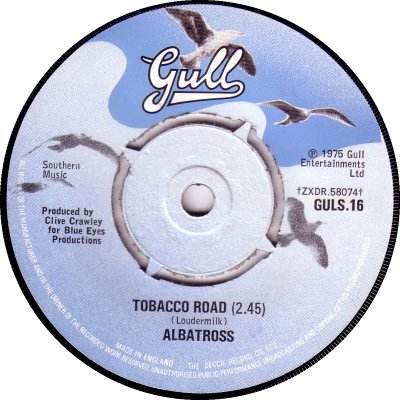
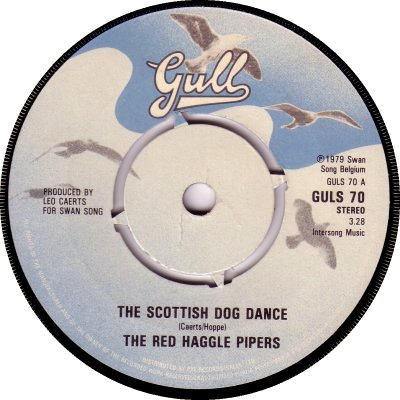
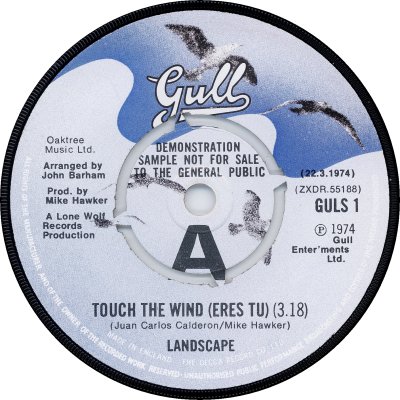
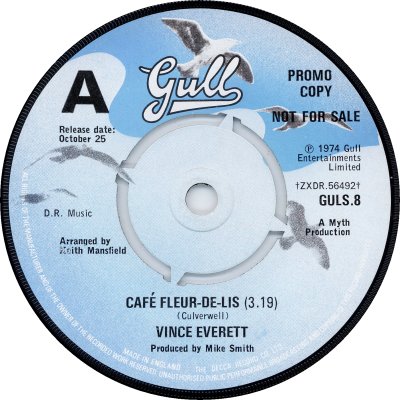
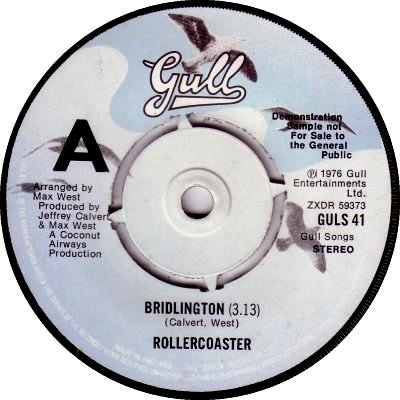
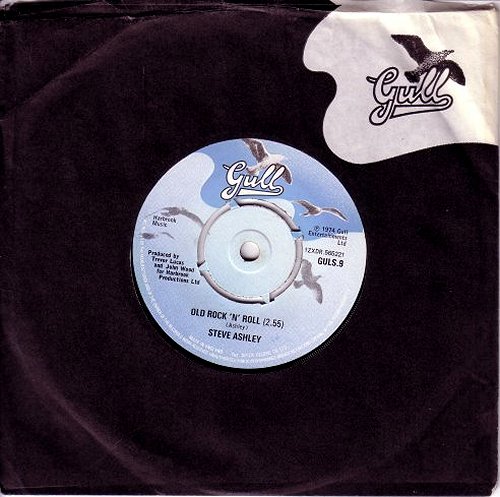
An independent company which had a reasonably long life and whose catalogue featured a wide range of music. The first signs of Gull were seen in 'Music Week' of the 29th of September 1973, which said MCA men Derek Everett and David Howells would 'probably' be forming their own label when their contracts expired, next year. A fortnight later 'MW' of the 13th of October was able to be a bit more definite: Everett had given notice at MCA and intended to start the Gull label with Howells, Monty Babson and Jeff Wayne, but he would be staying on for a few weeks to assist with MCA's move from Decca to EMI, which was in the offing. 'MW' of the 19th of January 1974 reported that Gull would be launched 'soon', but that talks about pressing and distribution were difficult 'in the current situation' - there were shortages of vinyl and of pressing-plant capacity around that time. The talks must have been successful, nevertheless, for 'MW' of the 23rd of February was in a position to reveal that the company had signed a three-year licensing deal with Decca. The first Gull single, 'Touch The Wind' b/w 'California On My Mind' by Landcape, came out in March, numbered GULS-1.
For the next five years the company kept up a steady stream of often interesting releases covering all kinds of genres. Albums tended to feature various kinds of Rock - Folk Rock (Steve Ashley), Jazz Rock (Isotope, Neil Ardley, Turning Point, Gary Boyle), Prog Rock (If, Seventh Wave), Kraut Rock (Kraan) and just plain straightforward Rock (Judas Priest, Strife) - but as well as offering tasters for those the company's singles veered from Pop and Disco to Reggae, with several novelty items thrown in. One of the latter, 'Barbados' b/w 'Sandy' (GULS-14; 5/75) by Typically Tropical, provided Gull with its first and by far its biggest hit when it soared all the way to the No.1 spot in the Charts. Reggae band The Diversions just missed out on a Top 30 placing with their version of 'Fattie Bum-Bum' b/w 'Jamaica' (GULS-18; 9/75) not long afterwards, but success proved elusive after that. Carol Douglas's rendering of the Bee Gees' song 'Night Fever' b/w 'Let You Come Into My Life' (GULS-61; 7/78) reached No.66 some three years later, but that was the only other Gull record to trouble the Chart compilers. The company didn't trouble the trade press much, either: 'MW' of the 18th of June 1977 noted that it had switched from Decca to Pye, this time on a pressing and distribution deal rather than a licensing one, but there were no other mentions of it in the '70s. The pace of Gull's releases eased off towards the end of the decade, with only four singles appearing in 1979. 1980 and 1981 saw just one single apiece, and 1982 none at all. There was something of a revival in 1983-84 but it seems to have come to nothing. A couple of Gull acts went on to greater things: Judas Priest were to enjoy fame and hits after they signed to CBS, while Tiger Lily evolved into Ultravox and were very big in the first half of the '80s.
One basic label design served Gull from start to finish. With the move from Decca (1) to Pye in 1977 there were minor changes: the typefaces changed slightly and a reference to Pye replaced the reference to Decca at the bottom of the label (2) - it's hard to see in the scan. Numbering was in a GULS-0 series which was basically unaffected by the changeover, though numbers jumped from GULS-47 to GULS-50 at the time. One Decca-era single, 'Tonight's The Night' b/w 'All You Funky People' by S.S.O. (GULS R-32; 3/76), had an 'R' added to its prefix, something that Decca did to indicate that there were export restrictions on a record. Gull remained with Pye and its successor PRT until at least the end of 1984.
Demo copies of the first two singles had the appropriate text above the spindle hole and the 'A' below it (3), but with the third release the test shrank in size, changed, and shortened; both it and the 'A' migrated to more usual positions, while the release date, at three o'clock on the first couple of issues, disappeared (4). With GULS-22 the reference to 'Promo Copy' or 'Promotional Copy' changed back to the more usual (for Decca) 'Demonstration sample' (5). There were no specially marked demo copies during the Pye / PRT years.
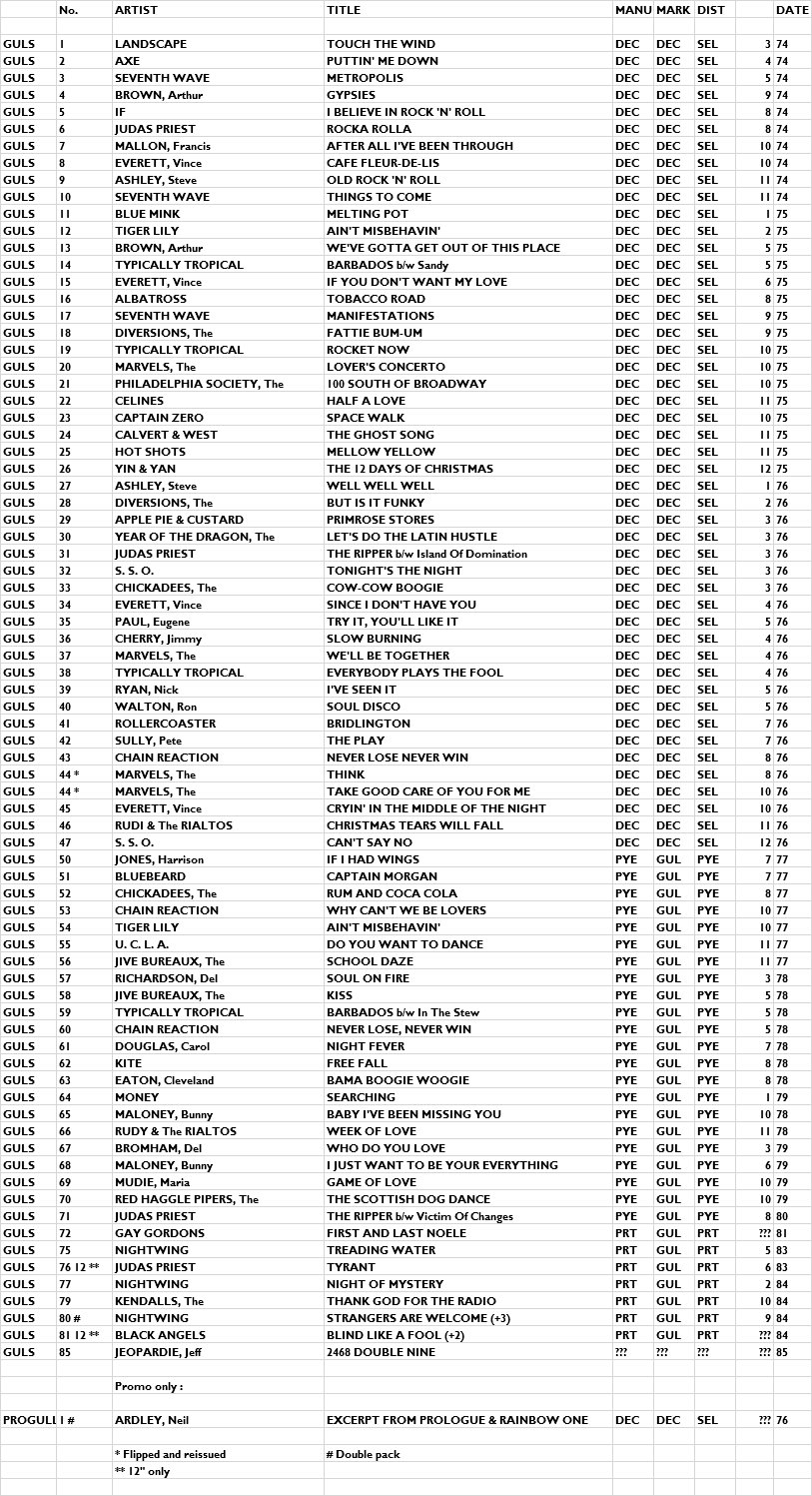


Copyright 2006 Robert Lyons.

